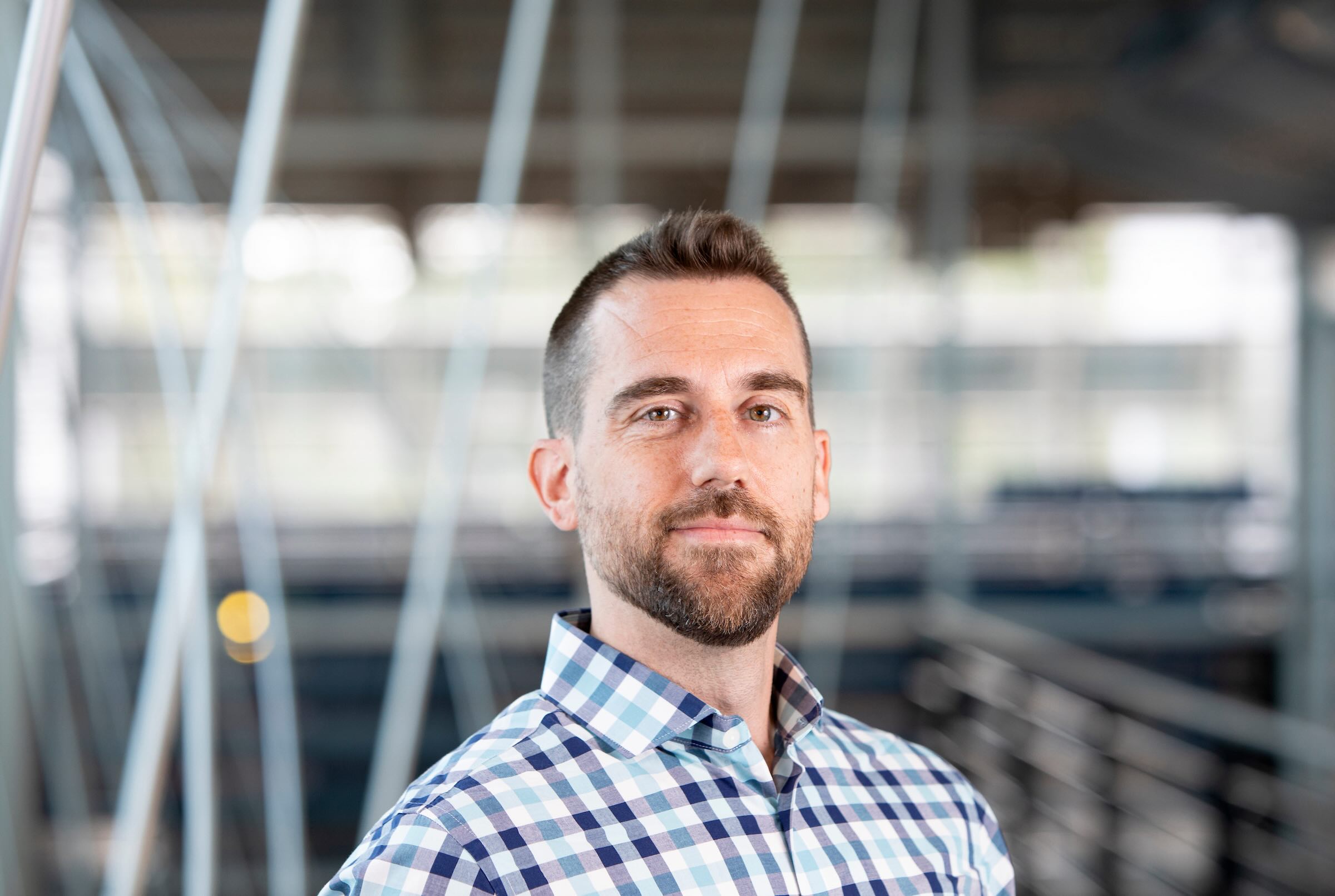UROP Project
Investigating Groundwater Transport of Micro- and Nanoplastics
Environmental Engineering, Micro- and Nanoplastics, Particle Fate, Pollution

Research Mentor: Jeffrey M. Farner, he/him
Department, College, Affiliation: Civil and Environmental Engineering, FAMU-FSU College of Engineering
Contact Email: jfarner@eng.famu.fsu.edu
Research Assistant Supervisor (if different from mentor): Alexander Rodriguez (Graduate student mentor)
Research Assistant Supervisor Email: arodriguez14@fsu.edu
Faculty Collaborators:
Faculty Collaborators Email:
Department, College, Affiliation: Civil and Environmental Engineering, FAMU-FSU College of Engineering
Contact Email: jfarner@eng.famu.fsu.edu
Research Assistant Supervisor (if different from mentor): Alexander Rodriguez (Graduate student mentor)
Research Assistant Supervisor Email: arodriguez14@fsu.edu
Faculty Collaborators:
Faculty Collaborators Email:
Looking for Research Assistants: Yes
Number of Research Assistants: 1
Relevant Majors: Engineering, Chemistry, Physics, Earth and Ocean Sciences, Environmental Sciences, OR! related majors and individuals with an interest in experimental laboratory work.
Project Location: Innovation Park (Engineering Campus), Centennial Building, 2077 E Paul Dirac Dr
Research Assistant Transportation Required: Can take the FSU shuttle to CoE building and walk across Engineering campus (~ 10 min). If the RA has a car, there is available parking at the Centennial building (no permit required). Remote or In-person: In-person
Approximate Weekly Hours: 5-10 hours / week, During business hours
Roundtable Times and Zoom Link:
Number of Research Assistants: 1
Relevant Majors: Engineering, Chemistry, Physics, Earth and Ocean Sciences, Environmental Sciences, OR! related majors and individuals with an interest in experimental laboratory work.
Project Location: Innovation Park (Engineering Campus), Centennial Building, 2077 E Paul Dirac Dr
Research Assistant Transportation Required: Can take the FSU shuttle to CoE building and walk across Engineering campus (~ 10 min). If the RA has a car, there is available parking at the Centennial building (no permit required). Remote or In-person: In-person
Approximate Weekly Hours: 5-10 hours / week, During business hours
Roundtable Times and Zoom Link:
- Day: Tuesday, September 2
Start Time: 12:00
End Time: 12:30
Zoom Link: https://fsu.zoom.us/j/4681056490 - Day: Wednesday, September 3
Start Time: 12:00
End Time: 12:30
Zoom Link: https://fsu.zoom.us/j/4681056490 - Day: Wednesday, September 3
Start Time: 2:30
End Time: 3:00
Zoom Link: https://fsu.zoom.us/j/4681056490
Project Description
Plastics introduced into the environment are exposed to factors like UV radiation, physical abrasion, and elevated temperatures. These weathering processes alter the physical and chemical composition of the plastic surface, leading to the release of micro- and nanoplastics (MNPs). Existing at diameters small enough to travel through the pore space in sand and soils, MNPs will move and accumulate in the environment according to the surface interactions they have. This colloidal transport plays a vital role in the biogeochemical cycling of material in the aquatic environment, although the extent to which realistic MNPs transport is still poorly understood. Additionally, MNPs may act as transport vectors through the sorption of hydrophobic organic contaminants.Most transport studies designed to predict the fate of MNPs utilize uniformly shaped spheres. These pristine particles are not accurate representations of the chemically altered and fragmented plastics found in the environment, limiting our ability to accurately model and prevent the contamination of MNPs in essential water resources, such as the Floridian Aquifer that provides drinking water to Tallahassee and surrounding areas. This research will investigate how simulated aging affects MNP properties and their subsequent transport through saturated porous media. Plastic particle suspensions will be aged and compared to their pristine counterparts to better understand realistic transport and how current models can be improved to predict anticipated concentrations following particle release.
Research Tasks: The UG RA will be involved in all aspects of the project: experimental setup, data collection, analysis, and results communication. They will produce and characterize suspensions of weathered micro- and nanoplastics which will then be introduced into column tests simulating groundwater environments. The RA will assemble and run column tests using various aquatic chemistries (e.g., ionic strength, presence/absence of organic matter). Particle stabilities will be calculated from the collected data detailing the transport of suspensions through the column, enabling predictions of particle movement in groundwater aquifers.
Skills that research assistant(s) may need: Required skills are curiosity, attention to detail, and interest in learning how to repeatably perform lab-scale experiments. The work is not physically taxing but requires focus and the ability to perform delicate tasks at specific times. The specifics of how to perform experiments and analyze data will be taught. Familiarity with Excel is recommended, while some knowledge of statical software packages (e.g., Matlab) is a plus.
Mentoring Philosophy
My goal for my students is that their research be influential to the scientific community and relevant to society, that their studies benefit their understanding of the field and equip them for their careers, and that their experiences deepen their understanding of themselves and the world around them. Beyond simply collecting data, students learn how to formulate questions, independently solve problems, interpret and analyze that data, and communicate their findings to others.Input from, and exchange with, colleagues is a critical aspect of student development. To foster collaboration and open communication, weekly group meetings include brief presentations detailing current research successes, techniques, and failures. By regularly presenting in a low-stakes environment, students become comfortable articulating the complexity of scientific research, as well as receiving and responding to feedback.
UGs in my lab work closely with a graduate student. I am directly involved in project development and meet regularly with UGs both in group settings and individually, but the MS/PhD is the contact for day-to-day activities. Upon joining the lab, students and I discuss their project, including the context and value of the research, expectations for both of us, and anticipated deliverables. Each student completes required departmental safety trainings and a research group-specific orientation before working in the laboratory. As the PI, my responsibility is primarily to support and encourage students in their development. My goal for UGs is that they learn techniques, gain laboratory experience and confidence, and inspire a love of research and science communication.

